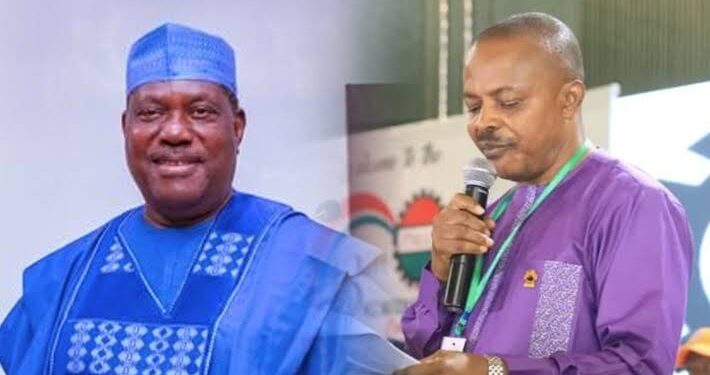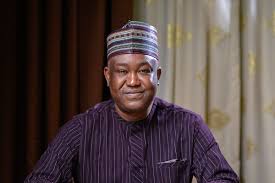The federal government can formulate policies and issue directives, but the responsibility ultimately rests on those overseeing their implementation.
The federal government asserts that organized labor bears the responsibility of ensuring compliance with minimum wage regulations by state governments, especially in cases where some states struggle to meet these obligations.
Speaking at the conclusion of a two-day pre-retirement summit organized by XEM Consulting Ltd in Abuja, the Secretary to the Government of the Federation (SGF), George Akume, emphasized the need for organized labor to actively enforce laws rather than solely rely on governmental intervention.
Akume, represented by Nnamdi Mbaeri, the permanent secretary of the General Services Office, OSGF, urged labor unions to take proactive measures in ensuring stakeholders adhere to established laws and regulations.
He stressed that while the federal government can introduce policies and issue directives, it is crucial for those overseeing implementation to ensure strict enforcement and penalize non-compliance accordingly.
Akume also highlighted ongoing reform programs initiated by the federal government aimed at uplifting citizens out of poverty, urging Nigerians to exercise patience as these initiatives take effect.

In his address, President of the Nigeria Labour Congress (NLC), Joe Ajaero, expressed regret over the inadequacies of the current pension scheme in addressing the challenges faced by Nigeria’s aging population.
Ajaero called for a significant increase in lump sum payments post-retirement to provide retirees with a more secure financial foundation. He emphasized the importance of creating a retirement system that guarantees a period of fulfillment rather than anxiety for workers.
Furthermore, Head of Civil Service of the Federation, Folashade Yemi-Esan, disclosed plans to revamp the existing health insurance program to cater to retirees, ensuring they are not neglected in their old age.
Yemi-Esan emphasized the importance of collaboration between civil servants and public servants to develop effective policies that support retirees. Efforts are also underway to facilitate homeownership for workers before retirement and provide them with essential health insurance coverage.

The Head of Service outlined a retirement plan focused on enabling civil servants to leverage their skills, particularly in the agricultural sector.
In conclusion, the convener of the Pre-retirement Summit, Eugenia Ndukwe, reiterated the commitment to prioritizing the welfare of Nigerian workers, especially retirees. The summit’s theme, “Challenges, Prospects, Strategies, and Opportunities at Retirement in Nigeria,” was carefully selected to prepare individuals for a fulfilling post-work life.
Ndukwe highlighted the importance of creating an ecosystem that supports retirees in transitioning smoothly, pursuing personal growth, and maintaining financial stability. The summit aims to explore sustainable income strategies, healthcare options, and opportunities for entrepreneurship and community engagement.
Exceptional individuals and institutions that have significantly impacted the lives of workers and retirees in Nigeria were recognized and honored during the summit, including awards for the Best Media Personality in Print, Broadcast, and Radio supporting Retiree Welfare.




































